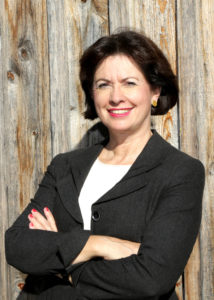Interview with Barbara Lochbihler

©Heidi Sanz
Meet Barbara Lochbihler, Martin Ennals Foundation Board member, Former Secretary General of Amnesty International Germany and Member of the European Parliament (2009-2019)
What motivated you to join the Martin Ennals Foundation?
During the past thirty years, in my role as Secretary General of Amnesty International Germany and before with the Women’s International League for Peace and Freedom in Geneva, and then later on as Member of the European Parliament, with a focus on human rights, the work and expertise of human rights defenders were and became central to me. The increasing challenges and threats they face demanding better protection of the rights of their fellow human beings is still very worrisome and needs all our attention and solidarity.
The Martin Ennals Award (MEA) is a very prestigious prize that creates public awareness about human rights struggles happening in many parts of the globe. It supports the courageous engagement of individuals and their organisations in improving human rights conditions. I feel proud to join the Martin Ennals Foundation Board and support this important international prize.
Why did you choose to join the UN Committee against Enforced Disappearance?
After ending my mandate in the European Parliament in Brussels, I was looking for a way to continue my human rights engagement. The United Nations human rights work in Geneva is at the centre of developing international protection mechanisms and norms.
Since a year now, I’m an independent expert in the UN Committee against Enforced Disappearance. It monitors the implementation of the International Convention for the Protection of All Persons from Enforced Disappearance and takes up individual cases. I’m enjoying the great teamwork with colleagues in an international context.
How do you think COVID-19 impacts the work of human rights defenders on the ground?
As it concerns the search for disappeared persons, COVID makes it much more difficult to file a case. When the relevant offices are closed and you are not allowed to go out to police stations or prisons, how can you look for the disappeared persons? The same goes for research work on the ground and other tasks such as meetings and networking, not all can be done via the internet.
2020 has been so far a year of global upheaval. What is your advice to human rights defenders across the world?
The work of human rights defenders is essential to improve the situation on the ground, by factual reporting of cases, by analysing the root causes of human rights violations, by demanding political change and proposing better legal protection mechanisms.
In 2019, Front Line Defenders registered 304 cases of human rights defenders who were killed. Increasingly human rights defenders are under threat, they experience violence and oppression. It is urgent to continue our international support and solidarity with human rights defenders, in order to counter and defend the space for civil society actors.
A few personal facts about Barbara:
The last good book she read:
“Half of a Yellow Sun”, 2006, by Chimamanda Ngozi Adichie, a novel taking place in Nigeria during the 1960s civil war for an independent Biafra.
The last good movie she saw:
“The Way to Cold Mountain”, GB/I, 2003, by Anthony Minghella, with Jude Law, Nicole Kidman, a civil war drama taking place in the southern Carolinas circa 1860.
She would like to visit:
“I would like to visit Geneva again, this beautiful international city, and hope in autumn the UN will go ahead with hosting a physical meeting of our Committee, which were all cancelled due to COVID-19.”

